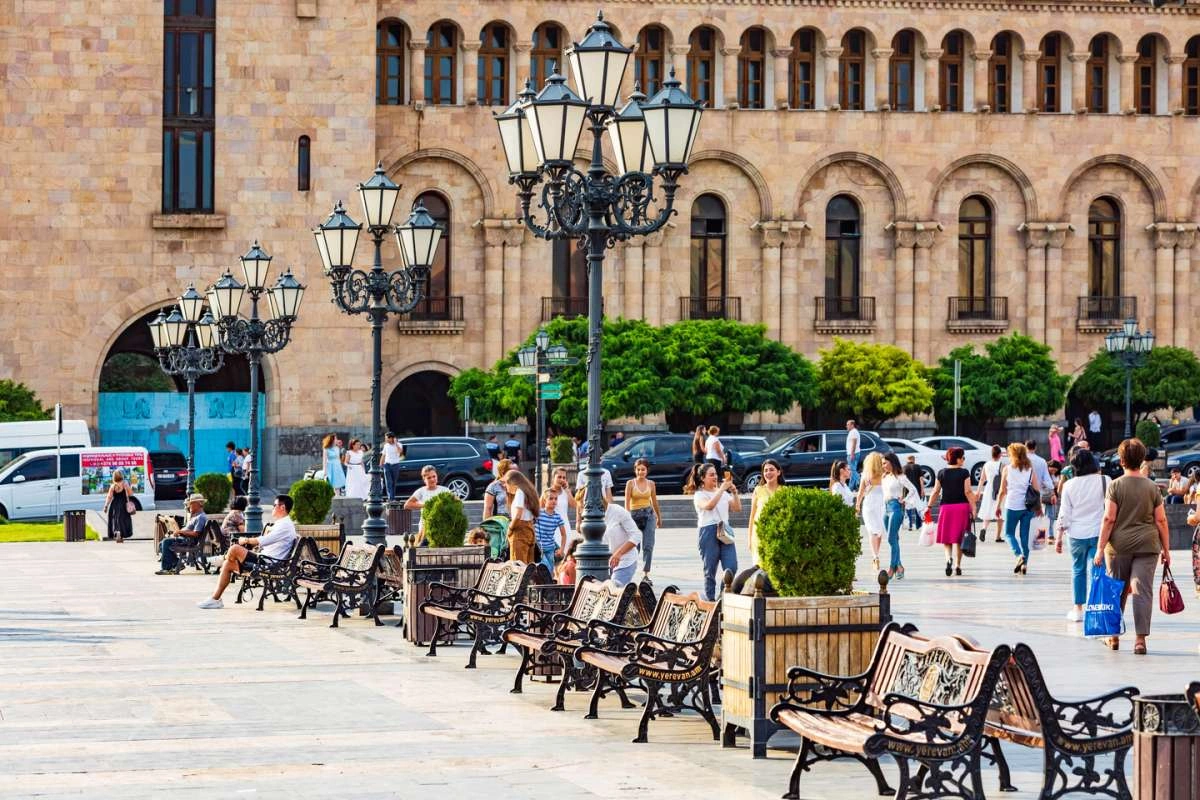
Following recommendations put forward by Links Europe, JOLIG plans to gather young Azerbaijani and Armenians together for a Tbilisi summer camp.
Image: OSTILL is Franck Camhi/Shutterstock
It’s a wet and chilly afternoon in Tbilisi, Georgia, and I’ve just left a lunchtime meeting with Anar Valiyev from the Azerbaijani Diplomatic Academy, and Ahmad Alili from the Caucasus Policy Analysis Centre. Two days earlier, Alili had invited me to the same hotel for a gathering of the Joint Liaison Group on Confidence Measures (JOLIG), a group of Armenian and Azerbaijani political scientists and analysts working towards confidence building. Despite recent border skirmishes, people from both sides continue to come together for meetings in the Georgian capital.
As well they should.
Sadly much of this type of dialogue had ground to a halt with the 2020 war, and what contacts do occur between the sides have since been mostly meetings of analysts. Yet there is an overwhelming need to facilitate people-to-people contact before any true peace agreement can be signed. One rare example of such contacts last year saw a small group of Armenian and Azerbaijani youth brought together in Strasbourg by the European Union to meet with their peers from France and Germany—two countries no strangers to protracted conflict in the past.
Another such meeting is planned in Berlin for mid-August funded by the German Academic Exchange Service (DAAD) in cooperation with the EU’s EU4Dialogue project. Such moves are positive, but what about holding meetings in the region itself and on a more regular basis?
Led by EU-funded JOLIG, plans are progressing to gather young Armenians and Azerbaijanis together in Georgia for the first South Caucasus Youth Summer School and Regional Dialogue Forum. This is also scheduled for August and is a pilot that will hopefully lead to many more, as well as starting an alumni network. The format could be modeled on the European Youth Center in Strasbourg, established by the Council of Europe in 1972.
The idea was one suggestion within a report titled “The South Caucasus from war to peace: 30 measures between now and 2030,” published last year by LINKS Europe, an organization which has been engaged with the South Caucasus for decades. It’s led by Dennis Sammut, one of the key figures present at this week’s JOLIG meeting.
“The idea of the report was to give a sense of what can be done in the short, medium, and long term,” he tells me at his hotel in the Old Town of Tbilisi. We’re just a stone’s throw away from Heydar Aliyev Park by the historic Turkish baths, and not much further from St. Gevorg Armenian Church, burial place of the great 18th-century ‘troubadour’ Sayat Nova, a pan-cultural figure who wrote in Armenian, Azerbaijani, Georgian, and Persian.
The report’s 30 recommendations cover almost every angle, from the economy to media, and read like a clear pathway to stabilizing relations between the countries and their peoples. Sammut admits that the full 30 measures would “need billions of euros to fund because they’re big, ambitious development ideas for the whole region” but that some smaller things can be done by civil society or non-governmental organizations.
“We wanted to put these ideas out there,” he continues, explaining that they are only suggestions and need to be developed more concretely. The report was presented in both Yerevan and Baku and involved discussions with various stakeholders, including the governments.
He sees a regional approach as vital, highlighting the potential role of Georgia, including in the creation of a South Caucasus parliamentary assembly. Such an idea has been attempted before, most notably in 2005, but it is even more necessary now. “Very quickly, we need to move to the regional dimension,” he opines. “Regional projects will inevitably be the cement that would consolidate any peace process.”
Share on social media